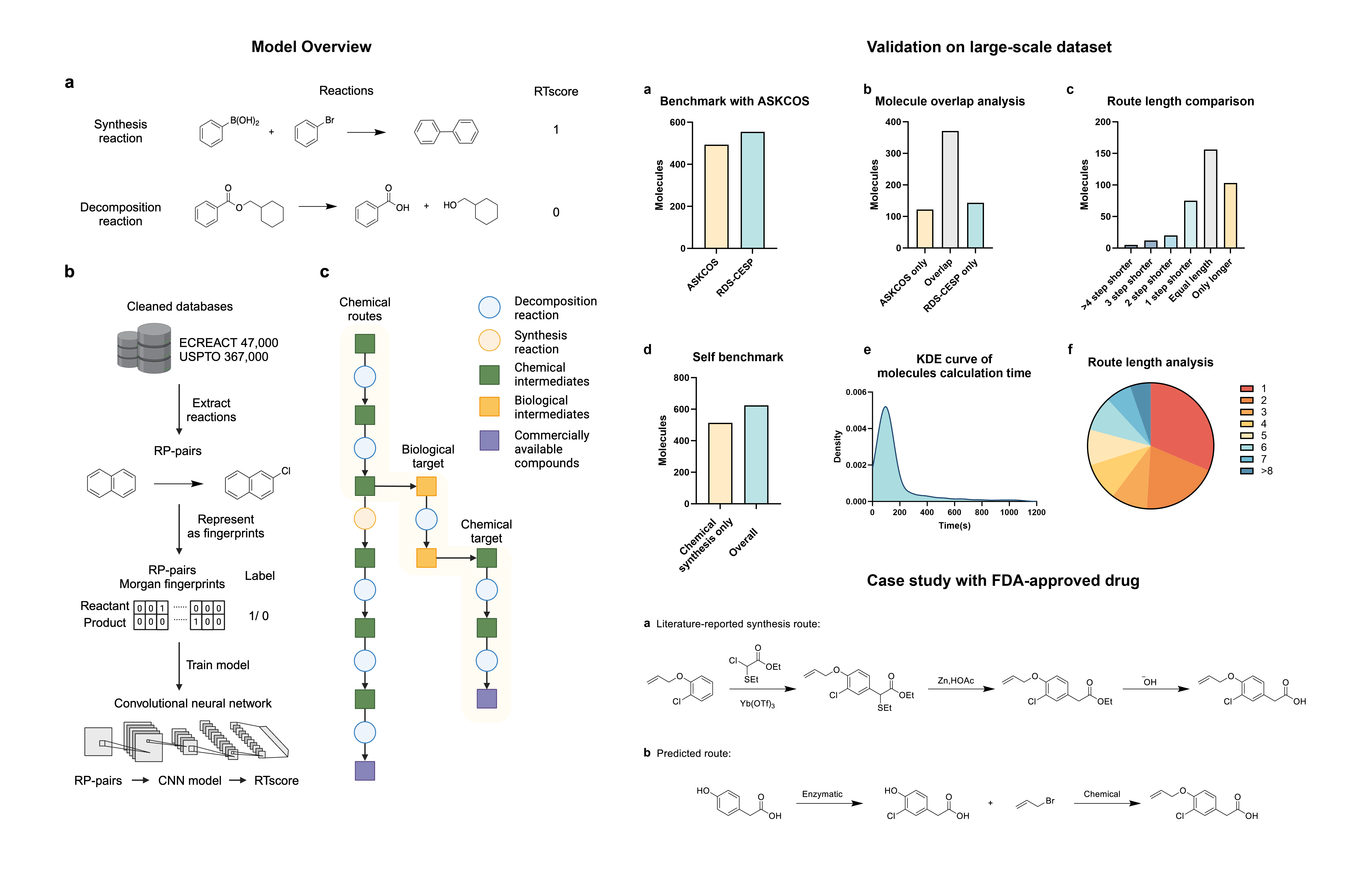2024 AIChE Annual Meeting
(101d) Chemoenzymatic Synthesis Planning for Drugs and Bioactive Small Molecules
Authors
Hongxiang Li - Presenter, University of Illinois at Urbana?Champaign
Xuan Liu, Xi'an Jiaotong University
Guangde Jiang, University of Illinois Urbana-Champaign
Huimin Zhao, University of Illinois-Urbana
The design of efficient synthesis routes for drug molecules plays a crucial role in pharmaceutical development. A well-designed synthesis route can significantly impact the cost, scalability, and sustainability of drug production. Moreover, it can facilitate the discovery of novel drug candidates by enabling the synthesis of complex molecules that are otherwise challenging to obtain. In this context, the development of innovative strategies for synthesis planning, such as chemoenzymatic approaches, holds great promise for advancing drug synthesis methodologies. Herein we report a reaction type score (RTscore)-guided chemoenzymatic synthesis planning (RTS-CESP) strategy for small molecules and drug synthesis. Briefly, the RTscore is trained using a convolutional neural network (CNN) to distinguish synthesis reactions from decomposition reactions and evaluate synthesis efficiency. Once multiple chemical synthesis routes are generated by a retrosynthesis tool for a target molecule, RTscore is used to rank them and find the step(s) that can be replaced by enzymatic reactions to improve synthesis efficiency. As a proof of concept, RTS-CESP was applied to 10 molecules with known chemoenzymatic synthesis routes in the literature and successfully predicted all of them, with six being the top-ranked routes. Moreover, RTS-CESP outperformed ASKCOS, a state-of-the-art chemoenzymatic synthesis planning tool, by predicting the chemoenzymatic synthesis routes for 554 out of 1000 molecules in a boutique database. Finally, RTS-CESP was employed to design a new chemoenzymatic synthesis route for the FDA-approved drug Alclofenac, which was experimentally validated and found to be shorter than the literature-reported route. Our findings indicate RTS-CESP is an effective tool for chemoenzymatic synthesis planning with strong implications for the design of efficient synthesis routes for small molecules and drugs.


